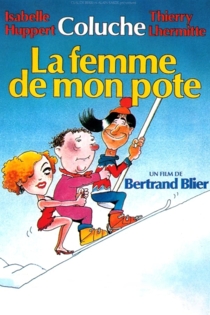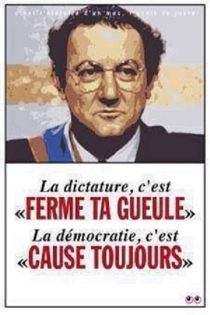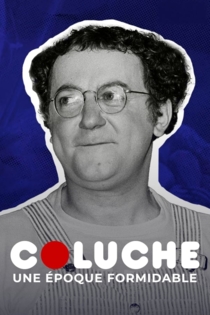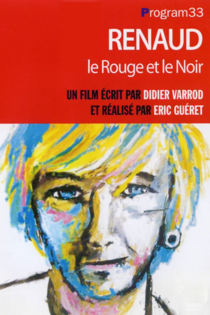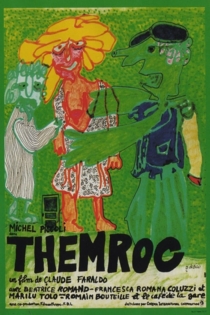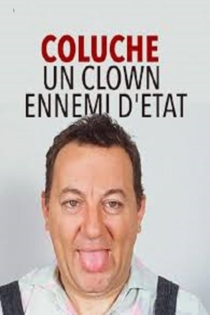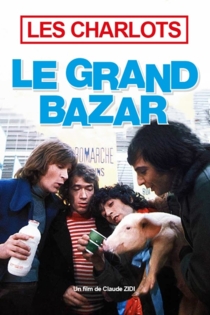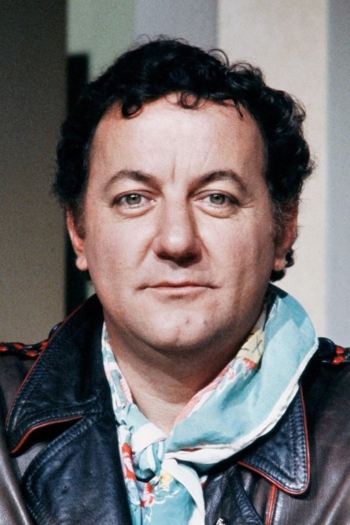
Coluche
1944 - 1986Colucci was born on 28 October 1944, just weeks after the Liberation of Paris, in a hospital in the 14th arrondissement of the city. His mother, Simone Bouyer (called "Monette"), worked as a florist in the Boulevard du Montparnasse. His father, Honorio Colucci, from Casalvieri in Lazio, Italy, was a painter and decorator. His father died in 1947 at age 31 from poliomyelitis; his wife struggled thereafter to raise the young Michel and his sister (Danièle, 18 months older than Michel) on a meagre salary.
Coluche showed little promise at school, and left after completing his primary studies (June 1958). He tried various temporary jobs, and had several run-ins with authorities. During this time his mother bought him a guitar, which he taught himself to play. In 1964 he joined the 60th Infantry Regiment de Lons-le-Saunier, but was imprisoned for insubordination. On his return to civilian life, he worked in his mother's florist shop which she had been able to open on rue d'Aligre, and later in a larger shop which she opened near la Gare de Lyon. He found this work dull, and suddenly quit, which caused a long-lasting breach with his mother.
At the end of the 1960s he tried his luck as a singer in cafes, then turned to comedy.
In 1969, with Romain Bouteille he was present at the start of the Café de la Gare, meeting place of a group of young comedic actors practically all of whom were to become famous: Patrick Dewaere, Henri Guybet, Miou-Miou, Martin Lamotte, etc. Among the patrons of the Café de la Gare were Georges Moustaki, Raymond Devos, Jean Ferrat, Jacques Brel, Leni Escudero, Pierre Perret and Jean Yanne. Later they were joined by Gérard Lanvin, Renaud, Rufus, Diane Kurys, Coline Serreau, Anémone, Gérard Depardieu, Thierry Lhermitte, Josiane Balasko and Gérard Jugnot.
Coluche's first sketch C'est l'histoire d'un mec (It's the story of a guy) was about the difficulties of telling a funny story. He quickly found success, but alcohol problems forced him to leave the group.
He went on to found another group, Le vrai chic parisien (The true Parisian chic) and it was then that he met his future wife, Véronique Kantor. They married in 1975 and had two sons, Marius and Romain Colucci. His behaviour and addictions forced him to leave the new group and launch his solo career.
It was at this point that he began to dress in his well-known outfit of white tennis shoes, blue striped overalls, a bright yellow T-shirt and round glasses. He became famous with his parody of a TV game (Le Schmilblick). He was sacked by the radio stations Europe 1 and Radio Monte Carlo for vulgarity. ...
Source: Article "Coluche" from Wikipedia in English, licensed under CC-BY-SA 3.0.
So Long, Stooge
Claude Berri
Coluche, Agnès Soral
In Paris XVIIIth district, Lambert works the night shift at a gas station, rarely speaking, living alone, drinking. One day comes a half-jewish half-arab small-time crook in dire straits, pushing a Moped. Named Bensoussan, he takes refuge at the station pretending he needs a spark plug. The two men become friends.
So Long, Stooge
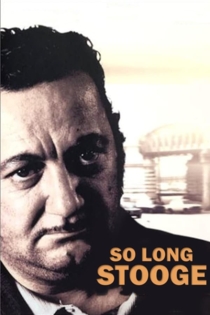
The Wing or The Thigh?
Claude Zidi
Louis de Funès, Coluche
Charles Duchemin, a well-known gourmet and publisher of a famous restaurant guide, is waging a war against fast food entrepreneur Tri- catel to save the French art of cooking. After having agreed to appear on a talk show to show his skills in naming food and wine by taste, he is confronted with two disasters: his son wants to become a clown rather than a restaurant tester and he, the famous Charles Duchemin, has lost his taste!
The Wing or the Thigh?
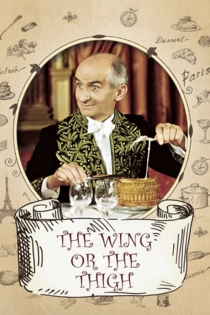
Inspector Blunder
Claude Zidi
Coluche, Gérard Depardieu
A detective, fresh out of the academy (lowest mark in class), gets the assignment to bodyguard a spoiled rich girl reporter. She's been interviewed on TV and has questioned the virility of a mobster who kidnaps her later.
Inspector Blunder
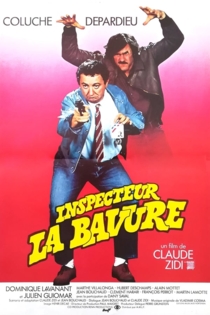
L'An 01
Jacques Doillon
Josiane Balasko, Christian Clavier
The film narrates a utopian abandonment, consensual and festive of the market economy and high productivity. The population decides on a number of resolutions beginning with "We stop everything" and the second "After a total downtime will be revived-reluctantly-that the services and products including lack will prove intolerable. Probably: water to drink, electricity for reading at night, the TSF to say "This is not the end of the world, this is an 01, and now a page of Celestial Mechanics". The implementation of these resolutions is the first day of a new era, Year 01. The Year 01 is emblematic of the challenge of the 1970s and covers such diverse topics as ecology, negation of authority, free love, communal living, rejection of private property and labor.
The Year 01
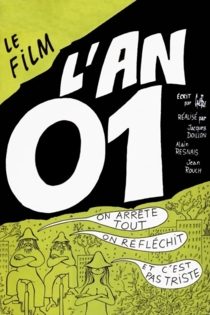
Cavanna, jusqu'à l'ultime seconde j'écrirai
Nina Robert, Denis Robert
Sylvie Caster, François Cavanna
The life and career of French novelist and journalist François Cavanna, his leading role in the invention of satirical press in France and foundation of 'Hara Kiri' and 'Charlie hedbo' newspapers.
Cavanna, jusqu'à l'ultime seconde j'écrirai
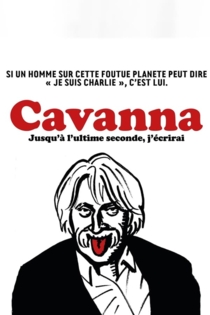
Laisse aller... c'est une valse
Georges Lautner
Jean Yanne, Mireille Darc
The day he is released from jail, Serge is expected by four killers sent by Count Charles Varèse assigned to make him confess where he has hidden the jewels stolen during his last stickup. On the other hand the police inspector who arrested him offers him protection on condition he gives him the same piece of information. Serge refuses and is about to be tortured by Varèse's henchmen when Michel, a friendly hood, comes to his rescue. His friendship will result in... a heap of corpses! —Guy Bellinger
Troubleshooters
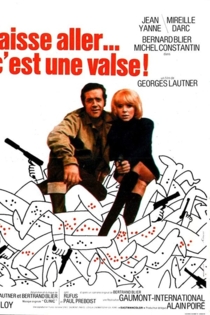
Le Maître d'école
Claude Berri
Coluche, Roland Giraud
After having lost his job for having saved a child accused of shop lifting, Frédéric Barbier decides to become a school teacher with some funny results.The great comedy actor Coluche is excellent as a simple school teacher.
Le Maître d'école
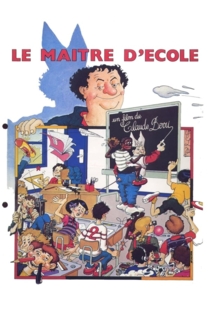
La femme de mon pote
Bertrand Blier
Coluche, Isabelle Huppert
The charming Pascal, owner of a clothing store in Courchevel, and the chubby and scruffy Micky, disc jockey in a nearby club, are best of friends. Pascal accumulates women, much to the chagrin of Micky, who is consoled of his failures by listening to his friend talk about his successes. Viviane arises, ravishing and icy, but she's seasonal. Pascal, sincerely in love, seduces her and then leaves. This is a dire situation for Micky: Pascal is far away and the beauty is so kind to him. Complications arise once Pascal returns.
My Best Friend's Girl
